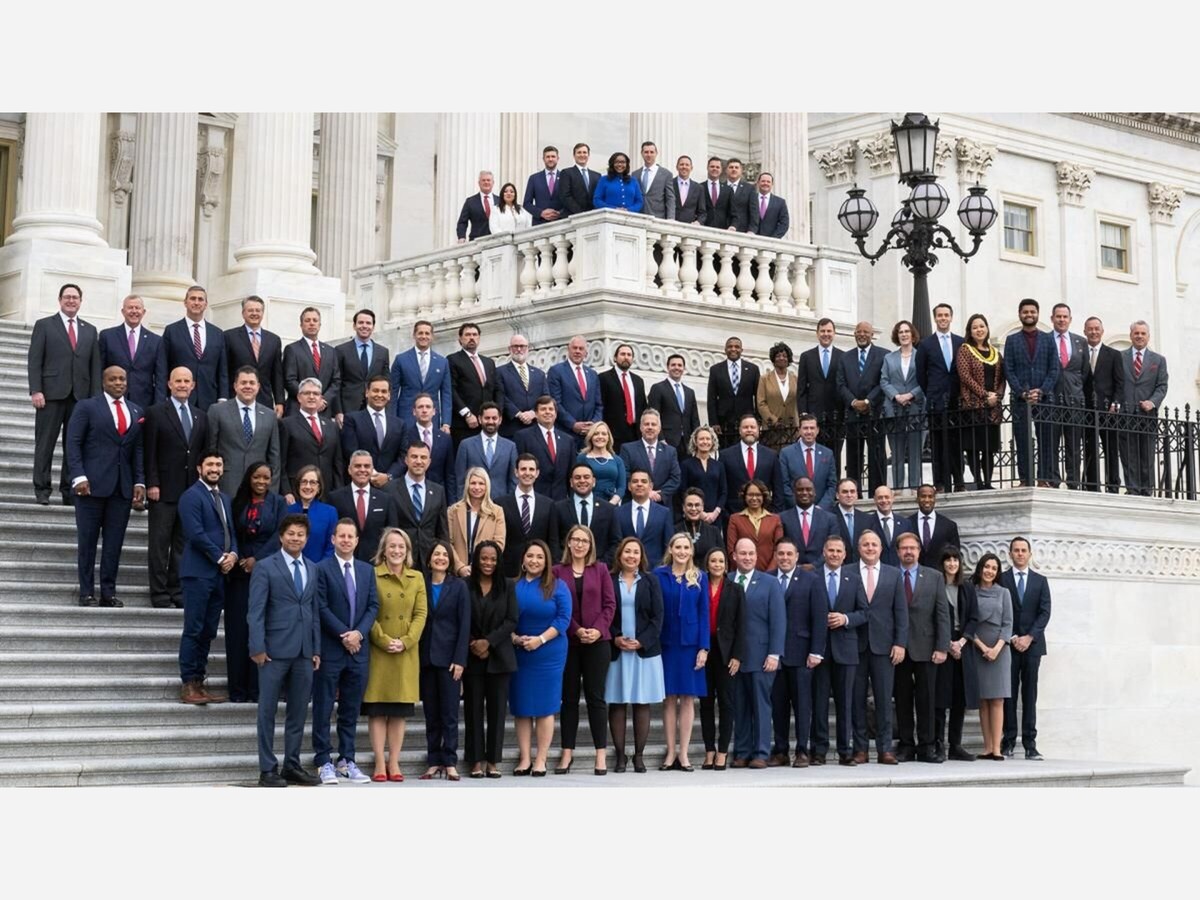Image


A new congressional term began Tuesday as members of the 118th Congress were set to be sworn in while questions remain over whether House Minority Leader Kevin McCarthy can get enough votes to be elected speaker of the House.
In a press release from U.S. Representative Gabriel Vasquez office and a post on his website; its confirmed that members were sworn into the United States House of Representatives January 3rd, 2023. https://vasquez.house.gov/media/press-releases/taking-oath-office
However, constitutionally there would be a question to the legitimacy of a swearing in, if it occurred, prior to the election of a speaker. So not to pars words, so to speak, but each member at this point has taken an oath, however the official ceremonial swearing in of congress for the official record can't officially happen without a speaker in place.
The first official act of the House in a new Congress is to elect a speaker, and no other member of the House can be sworn in before that happens. The speaker of the House, in addition to deciding what comes to the floor for a vote, is, per the Constitution, second in line to succeed the president. The speaker is in line behind the vice president. Adding to the urgency, the chamber cannot move forward with any legislative business until a speaker is elected. No committees can be formed, no committee chairs or rules agreed upon and no legislation can move forward or any action by the House until a leader is selected.
At noon, the clerk of the House raised the gavel for the 118th Congress and call a quorum or call for the minimum number of members that must be present for business to be done.
Candidates for speaker are nominated by each party’s caucus or conference.
On Tuesday, Democrats united placed New York Rep. Hakeem Jeffries’ name into nomination. Republicans as expected placed Kevin McCarthy’s name into nomination.
No rule requires the nominee to be an elected member of the House, according to Article I, Section II of the Constitution.
Prior candidates nominated for the position who were not members of the House when they were nominated include former Sec. of State Colin Powell, Georgia politician Stacy Abrams and Sen. Rand Paul, R-Kentucky.
After nominations are offered, the speaker is elected by roll call vote. A candidate must receive a majority of the votes cast to become speaker. If all members of the House are present and voting, the majority is 218 votes.
If all the members are not present, it is a majority of the members present and voting who selects the speaker. If no candidate wins a majority, the roll call is repeated until a speaker is elected.
In 1849, the House was in session 19 days without being able to elect a speaker, with no candidate having received a majority of the votes cast. The House voted 59 times before it adopted a resolution that declared that the speaker could be elected by a plurality – the person who receives the most votes even if it is not a majority.
In 1856, the same thing happened except the House had 129 votes before declaring the candidate could be elected by a plurality.
Republicans faced a leadership drama as they took control of the House on Tuesday and the first of them governing the new house showed a house in disarray, upsetting moderates and many Republican donors across the nation.
As the 118th Congress convened, the first order of business in the chamber was the election of a new speaker -- and current Republican leader Kevin McCarthy is so far being stymied by a group of hardliners demanding concessions. The House voted three times for speaker and McCarthy could not garner the 218 votes required. In the third round of voting, 20 Republican lawmakers voted against McCarthy for speaker: the highest amount so far. Those votes went to Rep. Jim Jordan of Ohio.
In the first two rounds, 19 Republicans voted for a different candidate. Rep. Byron Donalds, R-Fla., voted for McCarthy two times before changing his vote to Jordan.
McCarthy received 202 votes in the latest round, making it the third time he’s trailed Democratic Rep. Hakeem Jeffries. Democrats had already elected Jeffries to be their caucus leader in the new Congress.
To win the gavel, McCarthy needs a majority of the members-elect who are present and voting. But because the GOP holds only a five-seat advantage, a small number of defections is stopping McCarthy from gaining the office he's long sought.
The House can conduct no other business until a speaker is chosen. For the first time in a century, the vote is requiring multiple rounds and now, multiple days.
An interesting fact: McCarthy has so far gotten fewer votes to be speaker in each round on Tuesday than he did when the last Congress convened in 2021. In 2021, when Republicans were in the minority, McCarthy got 209 votes from every Republican voting. In the three rounds Tuesday, with voting continuing, he got 203, 203 and 202.
So, for newly elected New Mexico Representative, Gabe Vasquez; he was a part of history and got to witness history as an active participant. Today showed just how messy the art of democracy can truly be.